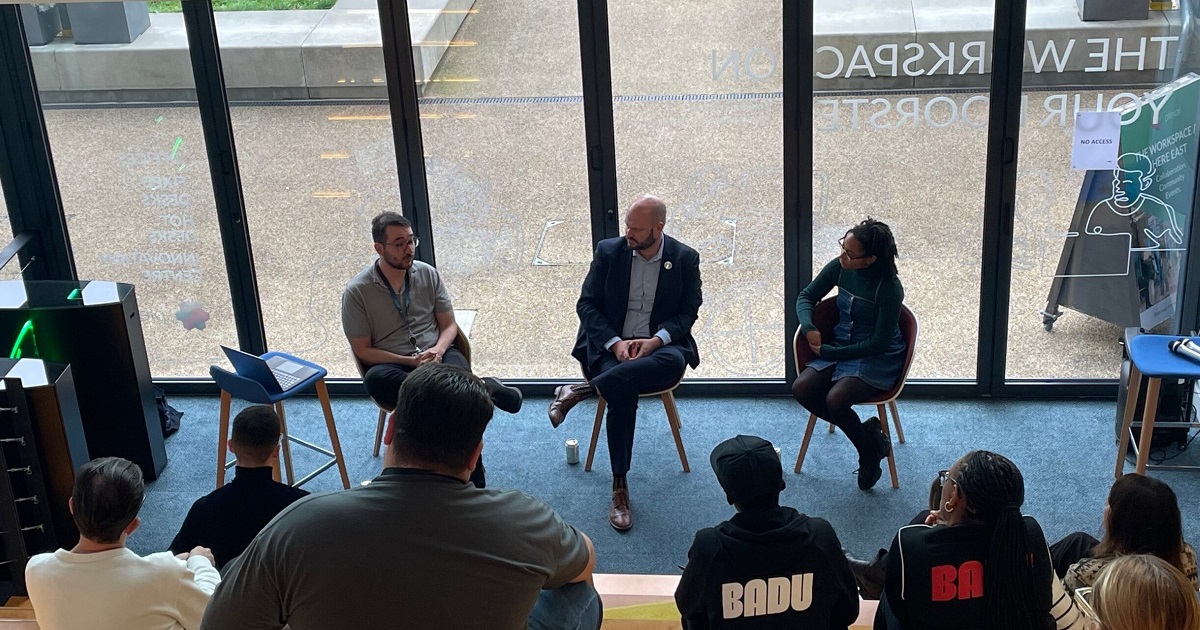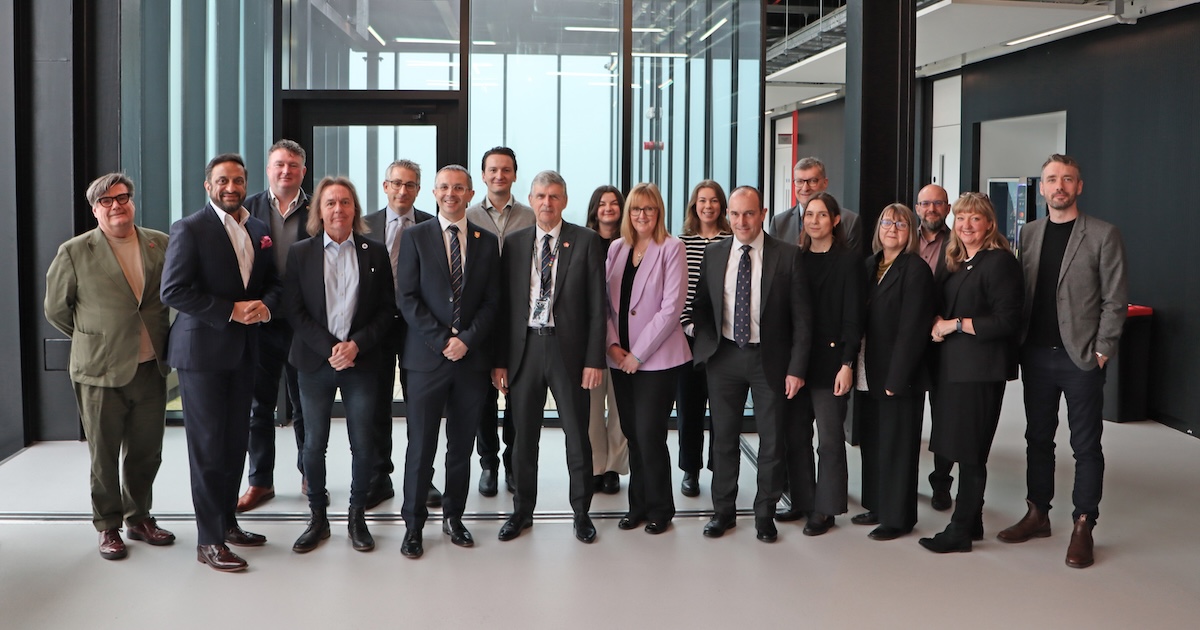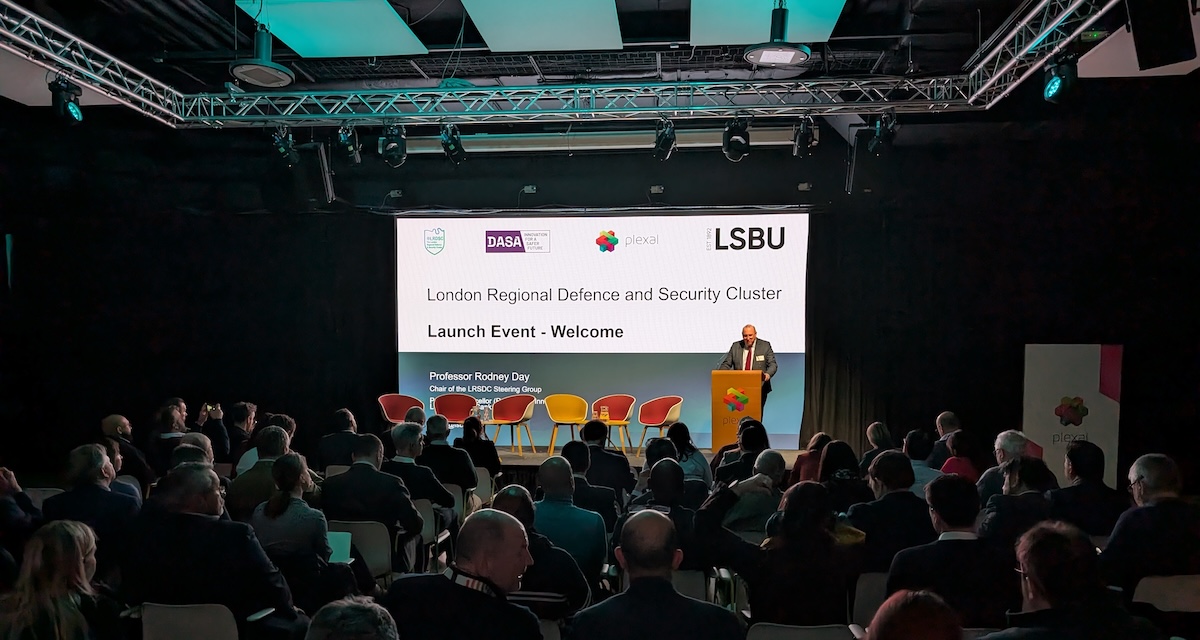That question was on most of our minds when we sat down for our Queer East: Sportswashing panel discussion. We were joined by the Mayor of Hackney Philip Glanville, and Rhianna St. John, a spoken word poet with a positive message and employee of our workspace member The Line Art Walk. It’s also a particularly apt one to be asking now, ahead of the World Cup final this Sunday between Argentina and France.
We polled our audience during the panel to ask who was actively boycotting the World Cup by refusing to participate in it at all. A few hands went up, and respect to those people, but then we posed a more interesting question: ‘Who seriously considered boycotting, but then decided against it?’ Most of the hands present went up including all three of us on the panel, which says everything about the heart of the issue: Qatar is an unsatisfactory choice of host nation, but we feel conflicted.
The source of our conflict
Same-sex relationships are criminalised in Qatar, and Human Rights Watch recently reported that Qatari security forces are arresting LGBTQ+ citizens with some undergoing forced conversion therapy. Beyond that, it has unique social demographics: its GDP per capita is about 5x the world average, but 85% of its population is made up of foreign workers. In 2021, The Guardian estimated that as many as 6500 of them had died building infrastructure and facilities for the World Cup. Human Rights Watch reported on this as well, noting in 2021 that foreign workers were still suffering from “punitive and illegal wage deductions”, and faced “months of unpaid wages for long hours of grueling work”.
But World Cups are infrequent, and for many of us celebrating them is an ingrained part of our culture. That’s not trivial, every society in history has held celebrations on monthly, yearly or longer periods. The World Cup is an excuse for us to socialise and share a source of excitement, and it’s reasonable to want to find a way to still do that while acknowledging the human rights atrocities of the host nation.
Which isn’t to say they’re being acknowledged satisfactorily. Mayor Glanville spoke of his disappointment about the last-minute decision for the England players not to wear OneLove armbands, under threat of yellow cards. Backing down was the wrong choice, but he did have a particular sympathy for the young players. Representing your country in a World Cup is a rare opportunity, one that’s hard to ask someone whose trained for it their whole life to risk throwing away.
Examining our outrage
Rhianna pointed out that this World Cup is far from the first instance of international sportswashing. Earlier this year Beijing hosted the Winter Olympics against the backdrop of accusations of genocide against China’s Uyghur population, and in 2018 Russia hosted the previous Football World Cup four years after illegally annexing Crimea – a particularly shameful fact considering its ongoing invasion of Ukraine. People should absolutely feel outraged by Qatar 2022, but being able to ask ourselves why, as a society, we might not have felt as strongly in the past is important.
Both Mayor Glanville and Rhianna agreed that David Beckham’s participation as a World Cup Ambassador is beyond unacceptable. Someone with his wealth and influence would have nothing to lose by making a stand, and Joe Lycett’s campaign to call him out on it – without shredding any real money – was as entertaining as it was justified.
And yet, should we be surprised? Beckham is a symbol of football in the UK, and the history of the intersection between our football culture and LGBTQ+ issues, sadly, contains a lot of toxicity and violence. Justin Fashanu killed himself in 1998, eight years after being first professional footballer to come out as gay. In May this year Jake Daniels bravely became the second openly gay player in the history of England’s top four men’s divisions, and that it took 32 years to happen paints a bleak picture of tolerance. Trying to process our feelings about the current World Cup while ignoring that would be an insult to the many queer footballers at home unable to live openly.
That said, it would be just as wrong to deny the progress that is being made. It is only fair to note that the situation, although still far from perfect, is much better overall in women’s football. Mayor Glanville also spoke highly of inclusive clubs in Hackney, something he’s been very proud to nurture over the years, and said that similar improvements at the local level can be seen across the UK.
The panel’s conclusion
Ultimately, there are no perfect answers and there never will be. The UK has a lot of skeletons in its own closet that we’re slowly but surely learning to confront, and it’s possible to be right while also lacking somewhat in moral authority. What matters is that, perfect answers or not, you’re trying to answer the questions anyway. So if you’ve struggled a bit with yourself over the question in the title, you’re probably on the right track whatever you decided.


